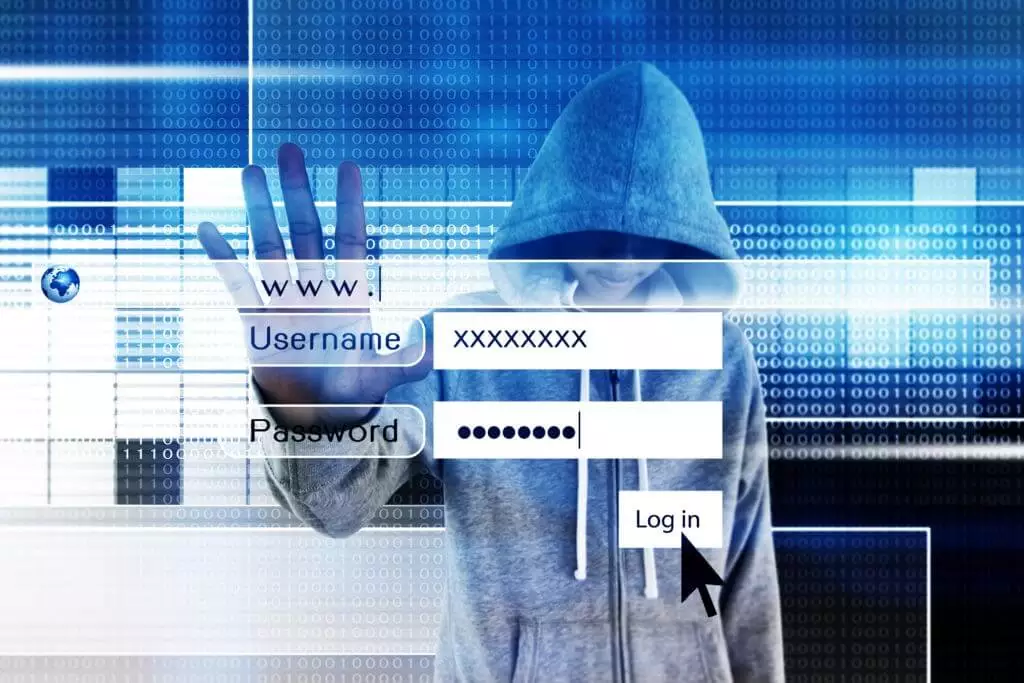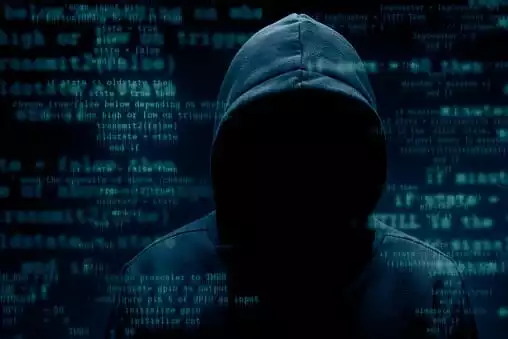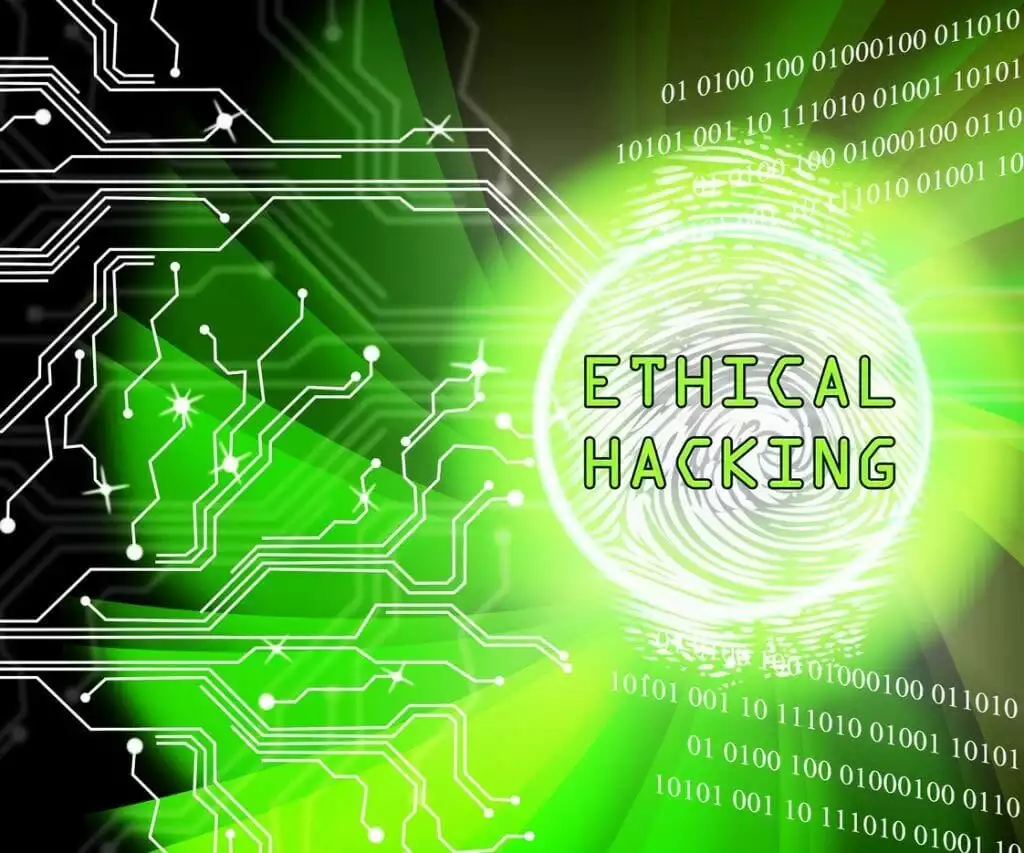A growing number of professionals are being required to learn Ethical hacking. This blog might help you in your search for an ethical hacker’s career path if you’re interested but unsure of where to begin. In this section, we’ll explain the various factors that will help you become an ethical hacker.

Who is an Ethical Hacker?
A hacker finds and exploits vulnerabilities in a system to gain unauthorized access to the system and perform malicious acts against it, such as deleting system files or stealing sensitive information. In the event that you are caught hacking, there can be severe consequences. There have been cases where hackers have been sentenced to years in prison.
Hacking, however, can be legal if it is performed with permission. It is not unusual for companies to hire computer experts to hack into their systems in order to identify vulnerabilities and weak endpoints. To protect legitimate hackers with malicious intent, this is done as a precaution. These professionals are known as ethical hackers, and ethical hacking is a process that allows them to enter a system without malicious intent.
Depending on their working activities, hackers fall into three categories:
White Hat Hacker – The Good Guy (Referred as Ethical Hacker)
In the virtual world, this is our Hero. In the digital realm, white hat hackers prevent bad things from happening. Basically, our Hero wants to stop the villains, aka Black Hat Hackers.
Before doing any testing or launching an attack, an ethical hacker seeks permission from the organizations. A hacker works for a company, government, or any other organization for their benefit.
Grey Hat Hacker – The one that stays in the middle
Their reputation in the hacking world makes them notorious and mischievous.
The grey hat hackers launch attacks without seeking permission from the authorities. However, their intentions are not malicious. It is, however, illegal to conduct any tests without permission.
Despite sometimes violating ethical rules, grey hat hackers do not launch any harm on anyone.
Black Hat Hacker – Bad Guy
Here is the man who is in the news constantly. Our perception of hackers is shaped by this guy, and even the word hacker is associated with bad intent.
These are the actual bad guys whose sole purpose is to harm people. It is clear from that that they don’t need permission to launch harmful attacks. There are no organizations behind these black hat hackers.
They are not recognized by any government authorities if they work in such organizations. In other words, black hat hackers are always in the dark. Those aren’t prospects they can hope for in the future.
What are the Requirements to Become an Ethical Hacker?

It depends on the field in which you work how your Ethical Hacking Career begins. You should definitely consider switching into an IT field if you are not in one. The vast majority of computer science and cybersecurity jobs require a Bachelor’s degree, but there are exceptions for those who have a solid operating system, database, and networking skills! In addition, becoming an ethical hacker is nearly impossible.
As tech support engineers, ethical hackers climb their way up, earning certifications such as CCNA and CISSP before earning their CEH. As an ethical hacker, it’s time to market yourself after earning your CEH certification!
Roles of an Ethical Hacker
Whether an ethical hacker is an in-house employee protecting a company’s website or apps or an independent freelance consultant conducting simulated offensive cybersecurity tests, they can fall into one of three categories. All of these employment options require familiarity with current attack methods and tools, but an in-house ethical hacker will likely only be required to have an intimate understanding of one type of software or digital asset.
Although in-house red teams are relatively new in the security industry, they do possess one advantage over independent consultants, which is that they have a deeper understanding of how their own systems and applications are built. The red team can use this insider knowledge to their advantage, as long as they can avoid becoming myopic in their view. Replicating this advantage would take real attackers years. The continuous use of an outside consultancy firm is viewed as more expensive than using in-house teams.
On the other hand, an ethical hacker can offer a fresh perspective by revealing vulnerabilities the internal team may have overlooked. A few organizations, even those which have an internal red team, contract an outside ethical hacker from time to time to examine their defenses from a fresh perspective.
Prior to launching any offensive activities, it is imperative that the client gives written permission to any external security provider. Permissions, including the systems, networks, applications, and websites that will be used to simulate an attack, should be detailed. Adding to the scope of the service without prior written permission is not allowed.
White-box, black-box, and gray-box ethical hacker engagements, along with other roles and functions within the cybersecurity field, are distinguished by different colors.
White-box engagement refers to giving the security professional as much information about the target application and system as possible. Simulations of attacks are able to search far and wide for vulnerabilities that would take a long time to find.
Black-box engagements, on the other hand, do not provide the ethical hacker with any insider information. An attack vector that resembles these circumstances is more like a real attack and provides valuable insight.
Grey-box engagements then simulate an attack where the attacker has already breached the perimeter and may have been inside the system or application for some time.
Several firms rely on both in-house and external ethical hackers in conjunction with these engagement types. In addition to providing the best view into what protection should be deployed, this branch of applied knowledge is also more expensive to employ.
The skills and knowledge of ethical hackers are useful for a wide range of security roles. Security analysts and network engineers heavily rely on these skills. Team Purple needs offensively skilled members. Software security developers benefit from knowing offensive methods and tools. Bug hunters, or security researchers, rely heavily on their knowledge of offensive tactics. Many successful bug hunters penetrate deeper than the application layer, exploring the network layer as well as other exploitable areas.
Skills Required for you to Become an Ethical Hacker
It is true that there are anecdotal stories of black hat hackers becoming whitehats in the past, but in today’s world, the most important requirement to become a successful ethical hacker is to have high ethical standards, as specified in the name. Good and bad guys are distinguished by their ethics. Some blackhat hackers possess the technical skills to be ethical hackers but have a lack of character discipline to follow the rules regardless of what the benefits of doing otherwise appear to be.
Members of cybersecurity teams are at risk if they have a history of cybercrime. Having an astute legal department in a large organization would make this kind of risk insurmountable. Therefore, when searching for work as an ethical hacker, it is imperative that your resume not include any work that could be construed as unauthorized or unethical. Even though people can certainly change over time, most employers understand that establishing a set of ethical life-guiding principles involves much more than just wanting a career change.
It is also vital to cover the “hacker” part of the colloquial nickname as well as having the “ethical” component covered. In order to become an ethical hacker, candidates must demonstrate advanced cybersecurity skills –
- Candidates who want to become ethical hackers must be familiar with both wired and wireless networks.
- Windows and Linux are recommended operating systems. They should also have a solid understanding of firewalls and file systems. In addition, they should have knowledge of servers, workstations, and computer science as a whole.
- The ability to code is vital. One must also understand and demonstrate direct, manual, and hands-on attack methods. To summarize, an ethical hacker should have defended so many assets over the course of their career that imitating and then thinking a few steps ahead of the adversaries have become almost second nature.
- In addition to an ethical code and strong technical skills, there must be an ability to think analytically and creatively. In order to be ethical hackers, one must be able to consider themselves as adversaries.
- It is important to understand what can motivate the blackhats and estimate the amount of time and effort they may be willing to devote to a specific target. As a pentester, you must understand how valuable your data and systems are.

Tools You Would Use In Ethical Hacking Career Path
There are a few basic tools that you must have a good grasp of in order to access in ethical hacking, such as:
- Wireshark
- Metasploit
- NMAP
- Acunetix Web Vulnerability Scanner
- Nessus
- Hashcat
- Social Engineer Toolkit
- Maltego
- John the Ripper
- Netsparker
Is ethical hacking a good career?
Internet usage is growing quickly, as we all know. Almost every company in the world has an online presence and conducts most of its business online. As you read this blog, we all use the internet these days.
The number of attacks will increase if the internet grows at a fast speed. The internet can’t stop growing because it’s essential for connecting.
As a result, we have only one option left, which is to stop the attacks done by Blackhat Hackers.
It is clear that everyone needs internet security. Nobody wants to become a victim of an attack. It seems like there are new vulnerabilities, hacks, and ransomware every day. There are plenty of opportunities for ethical hackers.
Statistics show that we need a lot of ethical hackers in the world.
Ethical hacking is a career you can pursue if you want to pursue a career in hacking. There will always be ethical hacking requirements. Ethical hackers will always be in demand.
How much money does an ethical hacker make?
Certified ethical hackers earn an average of $80,007 per year, according to statistics. According to EC-Council senior director Steven Graham, the average salary for a certified ethical hacker starts at $95,000. Eric Geier, the founder of NoWiresSecurity, estimates a more conservative salary range of $50,000 to $100,000 per year in the first two years of employment, depending on your employer, experience, and education. In particular, independent consultants can earn up to $120,000 per year with a few years of experience.
Ethical Hacker Job Profiles
After attaining the much-coveted CEH v10, an ethical hacker can try for the following roles:
- Information Security Analyst
- Security Analyst
- Certified Ethical Hacker (CEH)
- Ethical Hacker
- Security Consultant, (Computing / Networking / Information Technology)
- Information Security Manager
- Penetration Tester
Certification and Courses
A Certified Ethical Hacker (CEH) and an Offensive Security Certified Professional (OSCP) are the two certifications that are specific to ethical hacking.
As explained by EC-Council, a Certified Ethical Hacker is a professional who understands and uses the same tools and techniques as a malicious hacker but in a lawful and legitimate manner to evaluate the security posture of a target system—developing a network security discipline as specific as ethical hacking is the basis of the CEH credential.
EC-Council offers a number of other cybersecurity professional certifications that could help you become more employable as an ethical hacker.
OSCP certification is offered by Offensive Security and consists of a virtual network containing targets with varying operating systems and configurations. During the exam, students receive instructions on connecting to an isolated network about which they are not familiar.
Examinees who pass the exam will demonstrate their capability to research the network (information gathering), identify any vulnerabilities, and execute successful attacks. Modifying exploit codes often entails compromising the systems with the intention of gaining administrative access.
An in-depth penetration test report, accompanied by screenshots and detailed notes, is required. Depending on the difficulty and level of access gained, points are awarded for each compromised host.”
An undergraduate degree in a computer-related field is a good place to start your career. An education in computer science or network engineering is recommended for employment in the security field. Choose programs with a strong interdisciplinary focus when selecting a bachelor’s program in cybersecurity.
Business management, computer engineering, and computer science are all essential components of good programs. Courses in technical writing and legal issues relating to technology and ethics may be found in programs. People who are well-rounded and can see their field from a wide angle are the best cybersecurity professionals.
In addition to a degree and a professional certification, self-study is necessary to stay abreast of the latest attack methods and offensive strategies. A home lab may prove useful in such situations. The methods used by successful ethical hackers in order to keep their edge over blackhat hackers include YouTube videos, online groups and forums, and social media posts and exchanges.

6 Responses
When you’re trying to spy on someone’s phone, you need to make sure the software isn’t found by them once it’s installed.
Your point of view caught my eye and was very interesting. Thanks. I have a question for you. https://www.binance.info/fr/join?ref=GJY4VW8W
Your point of view caught my eye and was very interesting. Thanks. I have a question for you.
Your point of view caught my eye and was very interesting. Thanks. I have a question for you.
Thanks for sharing. I read many of your blog posts, cool, your blog is very good.
Your point of view caught my eye and was very interesting. Thanks. I have a question for you.